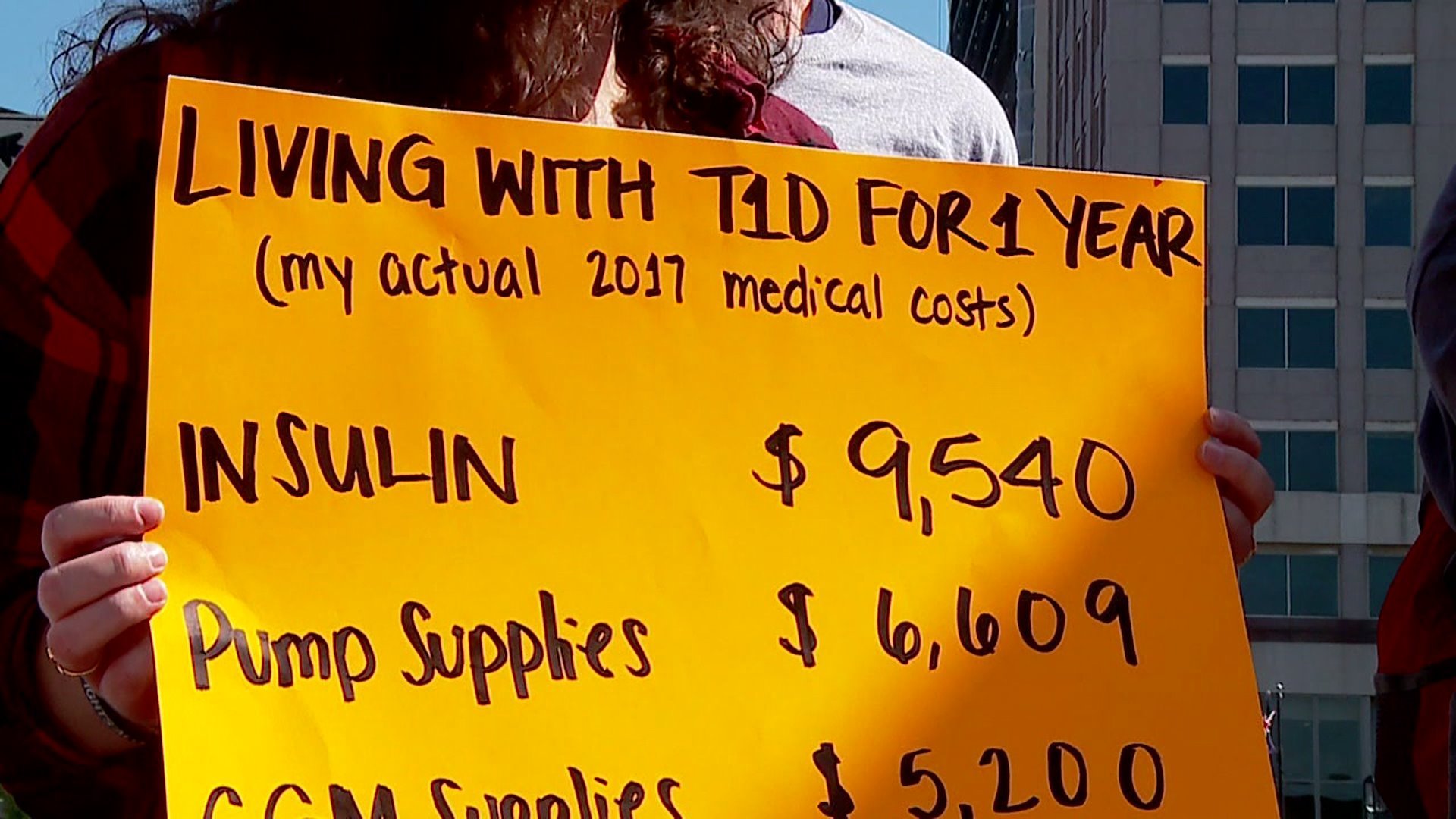
Insulin prices are going through the roof.
At least three diabetics died in 2017 from rationing insulin, a flashpoint in the battle to reduce stratospheric U.S. drug prices. With 30 million Americans having diabetes, the disease is the nation’s seventh leading cause of death. Against that grim backdrop, insulin prices rose 270 percent during the past decade; insulin can cost patients hundreds of dollars a month.
Who’s to blame?
To most people, it’s the big pharmaceutical companies. They’re mean. If they weren’t mean, they wouldn’t raise their prices.
Yet that’s not how economics works. When prices skyrocket, it’s a signal in the marketplace there’s too little supply for increasing demand. For a very brief period it might be a crisis. But it’s also an opportunity for competing drug companies to come on the market, increase the supply and bring prices down.
Screaming at large drug companies will not change a thing. The drug market is already heavily regulated by the federal government. And health care and health insurance, especially since Obamacare, are virtually socialist. If government intervention in the marketplace were so effective, the escalating cost of insulin for Type 1 diabetes would not be taking place.
What is the federal government to do? Issue an order that drug companies charge less? They already insist their profits are the same. Whether that’s true or not, price controls cannot solve the problem. Price controls will create new problems. When the government orders a private industry to lower or freeze its prices, it creates shortages. So if the government does so with insulin, everyone will suddenly be able to afford insulin. But most will not be able to get any, because the root problem remains unsolved: too little supply for too much demand. The government cannot fix this!
The only solution is to deregulate the insulin marketplace — as part of a larger package of deregulating the entire prescription drug industry. In the best case scenario, nothing should be against the law except for objectively proven fraud. If people sell sugar pills as antibiotics or insulin, of course they should be prosecuted for fraud. But beyond that, government should stay out of the entire industry, so customer-patients and profit-making producers may more effectively communicate with each other. They do so through pricing.
The problem with insulin, while not small for diabetics, is a metaphor for everything else wrong in our government-regulated economy.
Nothing will save these people who can’t afford insulin other than a totally deregulated market.
We should even do away with the FDA. The FDA, under the guise of protecting consumers, uses its powers of coercion to make deals with gigantic corporations in ways that benefit the corporations. That’s what’s going on with insulin. The drug companies might not like the idea of increasing freedom of competition, because it will cut their profits. So the drug companies align with the FDA to say it’s for the sake of “consumer safety” that we must prevent competition in the drug industry. The very government regulation people count on intensifies the problem.
To most people, doing away with the FDA seems too radical. OK, then. Let’s keep the FDA in place, for now, and let citizens decide whether they wish to follow its recommendations or purchase drugs on the open market where the FDA does not approve. Many of the drugs on this market will eventually be legal anyway, only it takes the FDA 10 or 20 years to run it through all its red tape and political considerations, with behind-the-scenes influences we will never know about. It’s supposed to be a free country, isn’t it? Why should the FDA have the final say?
I, for one, am mighty glad there are big, profitable drug companies. Some of those drug companies have to be big and profitable in order to get the job done. Look how effective Amazon.com is in doing all that it does. It’s big and profitable. Sometimes big is better. The problem isn’t big and profitable. The problem is a lack of competition and the lack of a free market. But people have to understand: Only the government can prevent the free market from operating as it normally would. If the free market is failing, it’s because it’s not really free!
The sad, sick situation with escalating insulin prices is not a failure of the free market. There is no free market in medical care, not in America nor anywhere in the world. There is some freedom — thankfully — but not a free market. If we had a free market, these things could not happen. Or, if they did, they would be short-lived, because competitors with the big drug companies (foreign and domestic) would rush to increase the supply of drugs to bring down the price.
It’s simple economics. But most people seem more comfortable remaining ignorant of even simple economics. It’s sad. Because a proper understanding could save untold numbers of lives. And it would make all of our lives far easier, not just with drugs but with everything else the government dominates and controls.
Young advocates of socialism, are you listening? Socialism will do for all other products and services (medical and otherwise) what it has already done for insulin. Is that really what you want to be facing for the decades of life ahead?
Follow Dr. Hurd on Facebook. Search under “Michael Hurd” (Rehoboth Beach DE). Get up-to-the-minute postings, recommended articles and links, and engage in back-and-forth discussion with Dr. Hurd on topics of interest. Also follow Dr. Hurd on Twitter at @MichaelJHurd1, and see “Michael Hurd” on MeWe.
